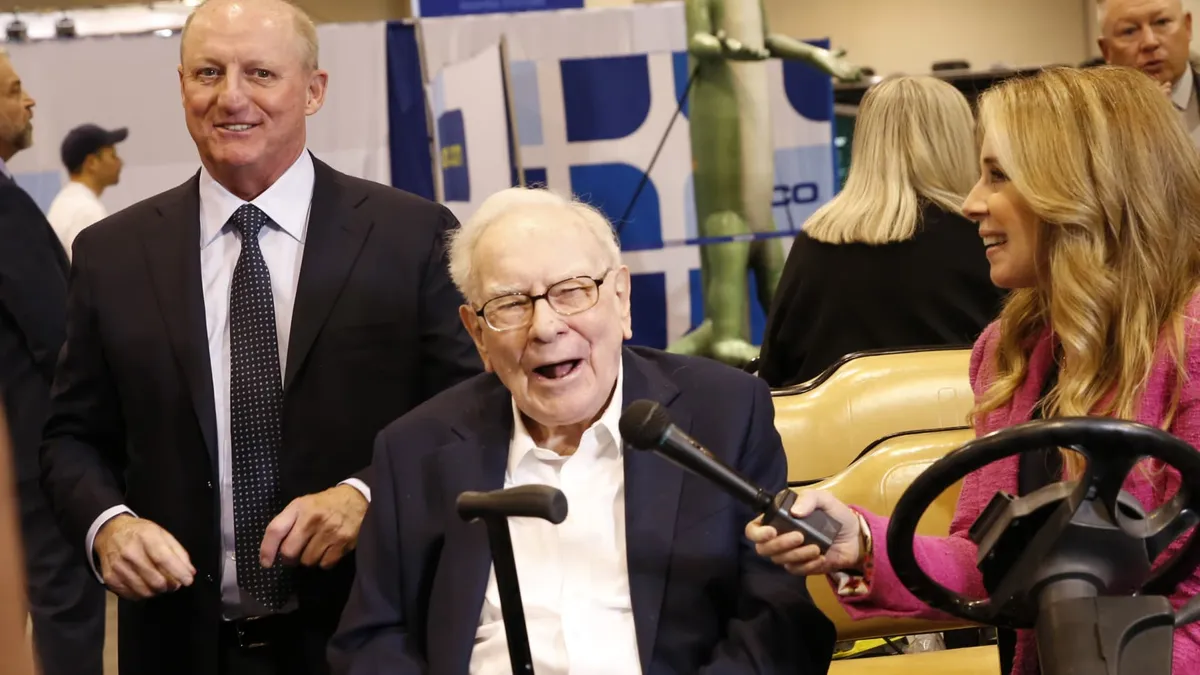
In a surprising announcement that has left the investing world in shock, Warren Buffett has declared his intention to step down from the role of CEO at Berkshire Hathaway by the end of the year. After an impressive six-decade tenure, Buffett will continue to serve as chairman while passing the CEO baton to his designated successor, Greg Abel. This transition marks a significant moment in the history of one of the most successful investment firms globally.
Warren Buffett's leadership has resulted in remarkable returns for investors, with Berkshire Hathaway's stock performance showcasing a legacy that has consistently outperformed the broader market. Since Buffett took over what was then a struggling textile company in 1965, Berkshire's shares have skyrocketed by an astounding 5,502,284% by the end of 2024, according to the company's latest annual report. In stark contrast, the S&P 500 index has increased by just 39,054% during the same period, even when accounting for dividends.
This impressive performance translates to a compounded annual return of 19.9% for Berkshire Hathaway, nearly double the 10.4% annual return recorded by the S&P 500. Buffett's strategic investment decisions have frequently propelled Berkshire's stock to outpace the market significantly. For instance, in 1998, Berkshire shares surged by 52.2%, compared to the S&P 500's 28.6% gain. Similarly, in 1976, Berkshire's stock soared 129.3%, outstripping the S&P 500's 23.6% increase.
Buffett's management has also demonstrated resilience during market downturns. In 2022, when technology stocks led a market collapse that saw the S&P 500 decline by 18.1%, Berkshire Hathaway managed to finish the year with a 4% increase. Likewise, in 1981, while the S&P 500 fell by 5%, Berkshire's stock rallied by an impressive 31.8%.
Despite some periods of underperformance, such as a 2.4% increase in 2020 compared to the S&P 500's 16% gain, Berkshire Hathaway has still managed to outperform the S&P 500 by nearly 2% over the past decade. Jeremy Siegel, a finance professor at the University of Pennsylvania, highlighted the significance of this achievement, particularly during a challenging decade for value investors. "For a value-oriented investor to be above the S&P 500 over the last 10 years—one of the most difficult decades for value investors in a century—is absolutely extraordinary," Siegel stated during an interview with CNBC.
As Warren Buffett approaches what is expected to be his final year as CEO of Berkshire Hathaway, he is set to conclude his tenure on a high note. In 2025, Class A shares of Berkshire have already climbed nearly 19% and reached an all-time high ahead of the annual meeting slated for Friday. In contrast, the S&P 500 has seen a decline of over 3% year-to-date, further emphasizing Buffett's remarkable legacy in the investment realm.